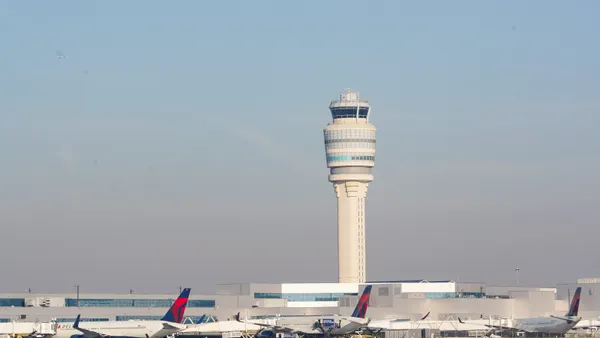Dive Brief:
- U.S. Customs and Border Patrol has secured only $20 million so far for construction of a 1,000-mile, U.S.–Mexico border wall, an amount that will finance approximately 7 miles, according to a ProPublica report.
- CBP officials told a group of contractors gathered in San Antonio that they will spend the limited funding on model walls, engineering services and land acquisitions.
- Adding to the project's woes, an Arizona conservation group — joined by U.S. Rep. Raul Grijalva D-AZ — has filed a federal lawsuit in an attempt to halt wall construction, according to the Associated Press, and is demanding an environmental review of the impact that the project and increased border security will have on area wildlife.
Dive Insight:
CPB officials said wall construction could begin approximately two years after full funding is secured. Even though President Donald Trump included a funding request for the wall in his preliminary budget, experts say it is unlikely that Republicans will include wall costs in this year's budget, leaving the how and when of financing up in the air.
A DHS report released earlier this year found that costs for the project — including a combination of wall and fencing added to existing barriers of 654 miles — could reach as high as $22 billion when calculated on a three-year schedule.
Bidders had until April 4 to submit their conceptual designs for the wall. The general specifications stipulated that the wall should be around a suggested height of 30 feet but no shorter than 18 feet. Contractors were also advised to submit under one of two categories of design — either reinforced concrete or a wall made of some other material.
There were approximately 700 companies who expressed interest through the bidding website, but it is expected that only a fraction of those submitted qualified proposals. CBP said it would most likely announce the finalists by June 1.
Some of the larger U.S. infrastructure firms, like AECOM and Bechtel, have elected to steer clear of the project and not submit a bid. For those contractors choosing to do so, there could be potential repercussions. San Francisco, Oakland, CA, and New York City officials have been the first public agencies to introduce or suggest legislation barring those who bid on the wall from performing work on public projects in their jurisdictions.












